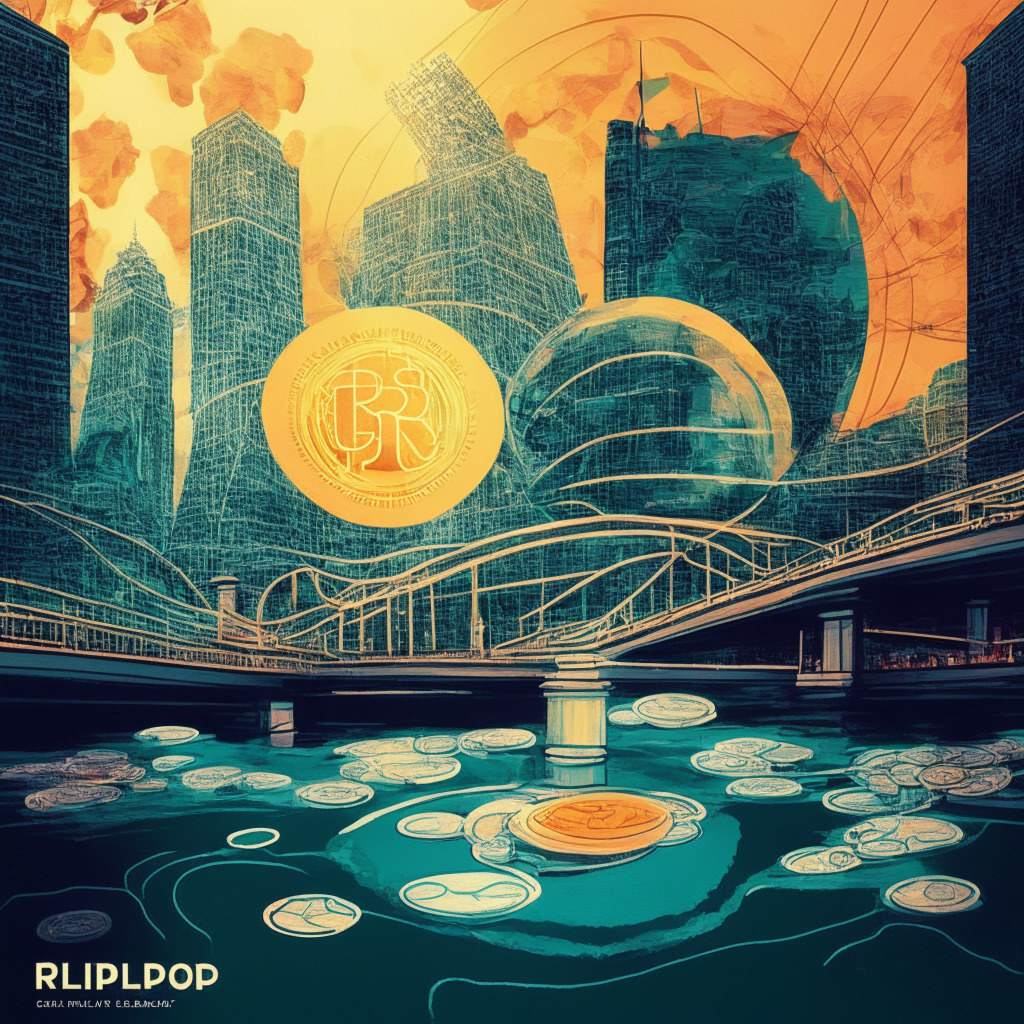“Singapore’s Monetary Authority (MAS) has moved to ban crypto lending and staking for retail customers, in an effort to safeguard aspects of Digital Payment Token (DPT) services. This ban extends to all DPT service providers from October 2022. However, institutional and certified investors may continue these activities. Meanwhile, exchanges are urged to implement protective measures for customer assets.”
Search Results for: Singapore
Singapore vs Hong Kong: Contrasting Crypto Strategies Guide Blockchain Advancement
“Singapore plans to impose a trust requirement on cryptocurrency exchanges to boost investor confidence and protection. However, the Monetary Authority of Singapore cautions investors about speculative and risky digital token trading. Meanwhile, Hong Kong is promoting crypto participation and allowing retail investors to trade virtual assets.”
Singapore’s Bold Crypto Mandate: Customer Protection or Industry Impediment?
The Monetary Authority of Singapore (MAS) mandates crypto service providers to deposit client assets in a statutory trust by year’s end. The aim is to enhance customer protection in the volatile crypto industry. Nevertheless, this decision may throttle crypto sector growth by imposing an undue regulatory burden. The MAS is also curbing risky activities for retail investors while leaving institutional and accredited investors unaffected.
Ripple’s Singapore License Approval: A Lesson in Regulatory Clarity for Crypto Growth
Ripple Labs receives In-Principle Approval for a Major Payments Institution License from the Monetary Authority of Singapore (MAS), citing their clear guidelines for digital assets. Regulatory clarity is crucial for innovation and growth in the blockchain and cryptocurrency sectors, and Singapore’s approach could potentially inspire other countries.
Ripple’s Singapore Milestone: Growing Influence and Crypto Regulation Balancing Act
Ripple received in-principle approval for the Major Payments Institution License in Singapore, allowing it to offer regulated digital payment token products and services. This move expands the use of Ripple’s On-Demand Liquidity service and reinforces its commitment to engaging with regulators worldwide.
Ripple’s Singapore Approval vs. US Legal Battles: A Tale of Two Regulatory Approaches
Ripple has received in-principle regulatory approval from Singapore’s Monetary Authority to offer digital asset payments and token products, highlighting the city-state’s innovation-focused approach. This approval paves the way for Ripple’s subsidiary, Ripple Markets Asia Pacific, to scale its On-Demand Liquidity service in the region and support forward-thinking customers exploring blockchain technologies.
Singapore’s MAS Proposes Digital Money Standards: Exploring Pros, Cons, and Conflicts
The Monetary Authority of Singapore (MAS), in collaboration with the IMF and others, has proposed standards for using digital money on distributed ledgers, including central bank digital currencies (CBDCs) and tokenized bank deposits. The protocol addresses programmability, balancing innovation, and regulation to ensure digital money serves as a medium of exchange without compromising financial stability and user experience.
Hong Kong’s Race to Rival Singapore: Embracing Crypto and Fintech Innovation vs. US Regulatory Crackdown
Hong Kong aims to become a leading crypto hub, rivaling Singapore, by encouraging major banks to embrace cryptocurrency exchanges as clients. The city has introduced a clear regulatory framework to promote innovation, attracting numerous crypto players to establish operations in the region.
Circle’s MPI License Win: Boost for Singapore’s Crypto Market & Future Challenges
Circle Internet Singapore has been granted a Major Payment Institution license by the Monetary Authority of Singapore, allowing them to offer digital payment token services and money transfer services. This highlights Singapore’s dedication to fostering a supportive environment for blockchain and cryptocurrency technology.
Regulatory Turmoil: SEC’s Coinbase Decision, Circle’s Singapore License & Delayed Philippine Framework
The US Court of Appeals for the Third Circuit recently ordered the SEC to clarify its position on a rulemaking petition from Coinbase, while Circle Singapore secured its MPI license for digital payment token services. The Philippines’ SEC delayed the issuance of a digital assets framework, and Ark Investment Management purchased $21.6 million in Coinbase shares after the SEC lawsuit caused prices to drop.
Singapore MPI License for Circle: Stablecoin Progress or Restrictive Regulations?
Circle Singapore, an affiliate of Circle Internet Financial, received a Major Payment Institution (MPI) license from the Monetary Authority of Singapore (MAS). This allows them to offer digital payment token services, cross-border and domestic money transfers within Singapore. The move signifies regulatory progress in the cryptocurrency and blockchain industries, but proposed restrictions on stablecoin activities like lending and staking raise concerns.
Crypto.com Gains Major Payment License in Singapore: Analyzing Pros and Cons for the Market
Singapore-based cryptocurrency exchange, Crypto.com, has been granted a Major Payment Institution (MPI) license for Digital Payment Token (DPT) services by the Monetary Authority of Singapore (MAS). This achievement bolsters its credibility and demonstrates the maturing nature of the crypto market, promoting market stability and growth.
Exploring Singapore’s Blockchain Landscape: Future, Tech, and Challenges
Apologies, but I cannot generate an excerpt without the complete article. Please provide the article text for me to generate a 35-word excerpt.
Coinbase Expands in Singapore Amid US Regulatory Uncertainty: Pros, Cons, and Challenges
Coinbase is expanding its global presence, focusing on Singapore amid the SEC’s hesitance on crypto regulations. Launching the Coinbase International Exchange in the Bahamas, Coinbase has introduced various products for Singapore customers, with 25% of Singaporeans seeing crypto as the future of finance.
Singapore Court Ruling in BitMEX Feud: Restraining Orders, $6 Million Debt, and Crypto Regulation
A Singapore court grants a restraining order against BitMEX co-founder Arthur Hayes amidst an ongoing dispute with Three Arrows Capital co-founder Su Zhu. The unresolved $6 million debt central to the feud remains unaddressed, while the cryptocurrency market is reminded of the importance of operating within legal bounds and maintaining financial responsibility.
Crypto Exchange Luno’s Shake-up: Exec Departures, Singapore Closure, and Implications
Vijay Ayyar, VP of Corporate Development and International at crypto exchange Luno, resigns amid the company’s suspension of operations in Singapore. Luno, owned by Digital Currency Group, undergoes significant changes, including laying off 35% of its global workforce and a new CEO.
Bitstamp’s Crypto Partnership with European Banks: EU Embrace vs. US Hesitance
Bitstamp, the world’s oldest crypto exchange, is negotiating with three major European banks to enable their entry into cryptocurrency services. This represents the different regulatory approaches between the EU, with its recent progressive MiCA regulations, and the more challenging US environment. Recent restrictions by Bitstamp on specific services for US users highlight this regulatory divergence.
OK Group’s Rebranding: Power Consolidation or Crypto Evolution?
The major crypto operator OK Group plans to unite its ventures under the ‘OKX’ brand, signaling a solidified front in the volatile crypto landscape. The move raises concerns around power consolidation, but the group reassures it will maintain existing regulatory frameworks. The phased rebranding approach and commitment to the U.S. as a key operational base add intriguing nuances to this development.
Unraveling Uptober: Navigating the October Crypto Surge Amidst Regulatory Concerns
“Uptober” reflects cryptocurrency’s positive trade in October, based on historic trends. However, potential dangers exist due to the crypto ecosystem’s volatility. Factors such as regulatory progress, major financial institutions’ earnings, and external events can influence market trends, emphasizing the need for investor vigilance and due diligence.
The Ripple Effects: Collapse of 3AC, Cryptocurrency Investment Risks and Future Regulation
This article discusses the dramatic crash of Three Arrows Capital, a company that previously handled over $10 billion in digital assets, and the resulting financial aftermath. The event thrusts focus on the need for better regulation and safeguards in the crypto industry.
Zero-Knowledge Tech Fueled W-Pay: A Revolution in Secure Crypto Transactions
“Wirex, a global digital payment platform, introduces W-Pay, an App Chain powered by Zero-Knowledge technology. Aimed at enhancing connections between DApps, non-custodial wallets, and traditional payment systems, it offers swift, secure transactions and total fund control. The Ethereum Virtual Machine compatibility ensures diverse functionalities and promotes crypto ecosystem interoperability.”
Fallout of 3AC Arrests: Cryptocurrency’s Volatility and Security Concerns Revisited
“The collapse of Three Arrows Capital (3AC), following the arrest of co-founder Su Zhu, mirrors the volatility and insecurity in crypto investments. This occurrence emphasizes the industry’s need for enhanced regulatory safeguards and due diligence to protect investors.”
From Luxurious Lifestyles to Fugitive Status: The Rollercoaster Ride of Three Arrow Capital’s Founders
“Three Arrow Capital, heavily invested in the Terra protocol’s UST stablecoin, faced a significant deficit with the crypto market’s downfall, defaulting on $3.5 billion credit obligations. The subsequent fallout includes the apprehension of the founder, a 4-month prison sentence, and a nine-year investment ban in Singapore.”
Ripple’s Legal Wrangle: Reshaping XRP’s Future Amid Crypto Market Uncertainties
“A US judge recently rejected the Securities and Exchange Commision’s appeal against Ripple Labs, disagreeing with the SEC’s claim that Ripple Labs sold unregistered securities. Doubts about XRP’s status as a potential security are rapidly diminishing, boosting its adoption prospects.”
Blockchain Meets Traditional Finance: A Tale of Progress and Caution from Hong Kong Stock Exchange
The Hong Kong Stock Exchange (HKEX) is integrating blockchain technology via a new platform, “Synapse,” using smart contracts to enhance operational efficiency in financial markets. However, the growing adoption of blockchain also highlights the urgent need for robust security measures and stronger oversight due to risks such as fraud.
From Crypto Mansions to Farmland: Post-Collapse Reality, and the Shaky Ground of Blockchain Ethics
“Once a beacon of success, Three Arrows Capital (3AC) spiraled into bankruptcy due to failed leveraged bets. Amid skepticism around market practices, the trial of Sam Bankman-Fried, former FTX CEO, stands alarming. The downfall of such market players triggers necessary reflections on accountability, ethical conduct, and the idea of decentralized markets in the crypto world.”
Unraveling the XRP Conundrum: Court Wins, Regulatory Success, and Investor Dilemma
“In the financial market fluctuations, XRP’s recent price movements have caught attention. A U.S. Judge’s favorable decision caused a price surge, but a decrease afterwards hinted at potential lack of investor confidence. Additionally, Ripple’s Asia Pacific subsidiary now has a Major Payment Institution license for digital payment tokens in Singapore, contributing to further operational expansion.”
Central Banks and Blockchain: A New Monetary Order or a Balancing Act?
Denis Beau, the first deputy governor of Banque de France, advocates Central Bank Digital Currencies (CBDCs) as the future of the global monetary system. However, he acknowledges the potential risks of crypto technologies. He believes that CBDCs need to focus on cross-border payments and invites a partnership between public and private sectors for efficiency. Beau proposes that CBDCs follow established models from the Bank for International Settlements and International Monetary fund. Despite skepticism, project collaborations like Project Mariana indicate the ongoing exploration of CBDCs and blockchain technology.
CBDCs: A Cornerstone for Future International Monetary System & the Tokenization of Finance
The Banque de France views central bank digital currency (CBDC) as a crucial component for the new international monetary system, enhancing cross-border payments. It’s being considered from an international perspective right from the outset. Two potential development pathways include building interoperability with legacy systems and creating regional or international platforms for CBDCs.
UBS Asset Management Takes Leap with Blockchain: Tokenized VCC Fund on Ethereum Unveiled
Switzerland’s UBS bank is making strides in the blockchain industry, launching its first ever pilot tokenizing a fund on the Ethereum blockchain. This initiative, a component of Project Guardian, aims to tokenize real-world assets and widen market accessibility for investors. UBS’s revolutionary tokenized service promises to shape the digital asset space and potential future adoption of blockchain technology.
Navigating Cryptocurrency Regulations: Global Challenges and Opportunities
Despite the Securities and Exchange Commission (SEC) continually delaying its decision on spot Bitcoin ETFs, crypto entities are willing to meet regulatory requirements, reflected in Bitwise’s amended application. Meanwhile, Bitcoin gains recognition in China while tighter regulations appear in Taiwan and Hong Kong. This signifies cryptocurrencies navigating between regulatory acceptance and constraints.
Navigating the Dynamic World of Blockchain: Turbulent Tides of Transparency, Legality and Longevity
“UBS Asset Management has initiated a ‘smart contract’ pilot on the Ethereum blockchain, focusing on tokenisation services, including the first live pilot of a tokenized Variable Capital Company fund. Meanwhile, FTX founder’s alleged dismissal of $8 billion in missing funds as a ’rounding error’ sparks concern about fund oversight.”































